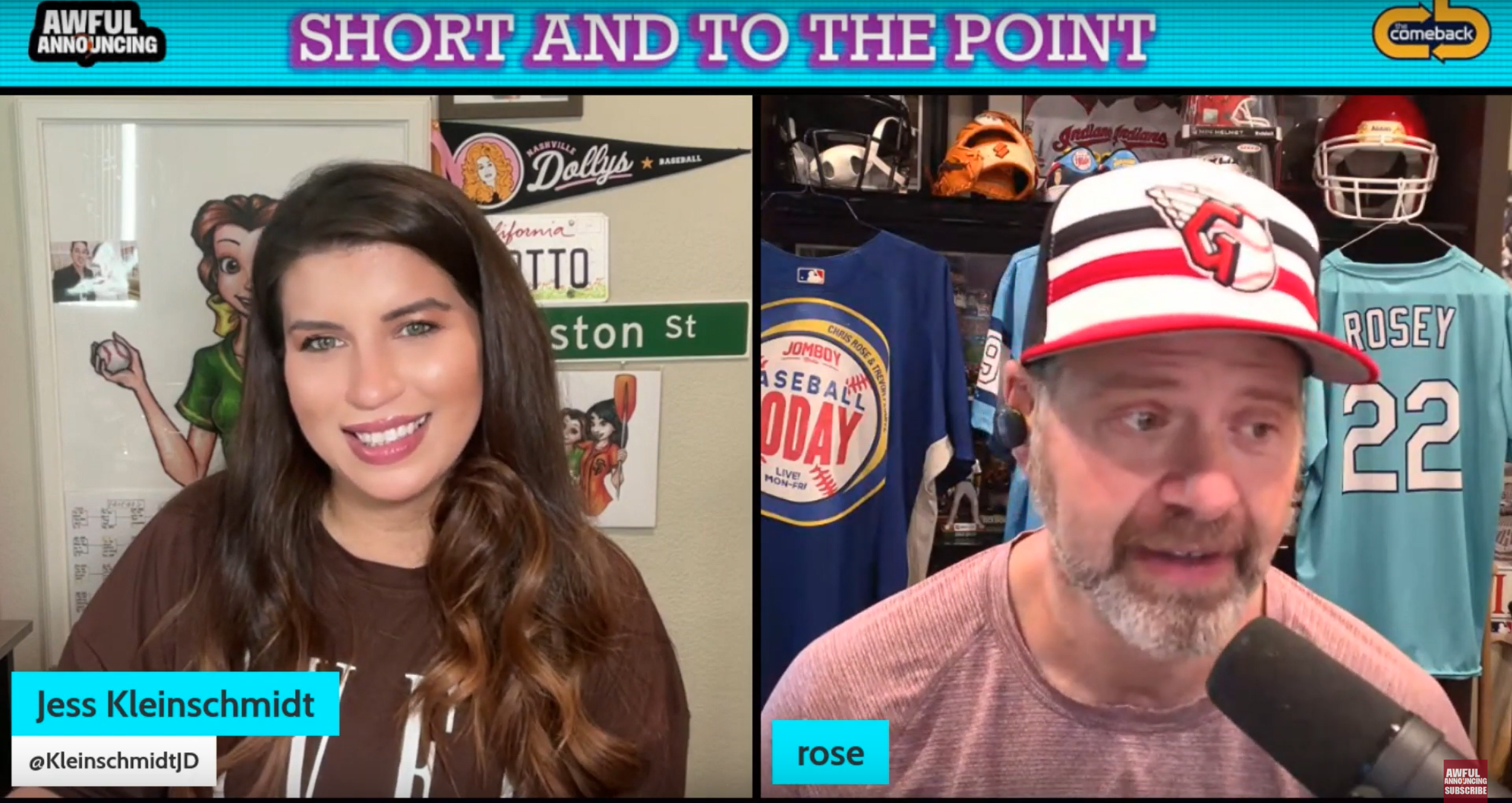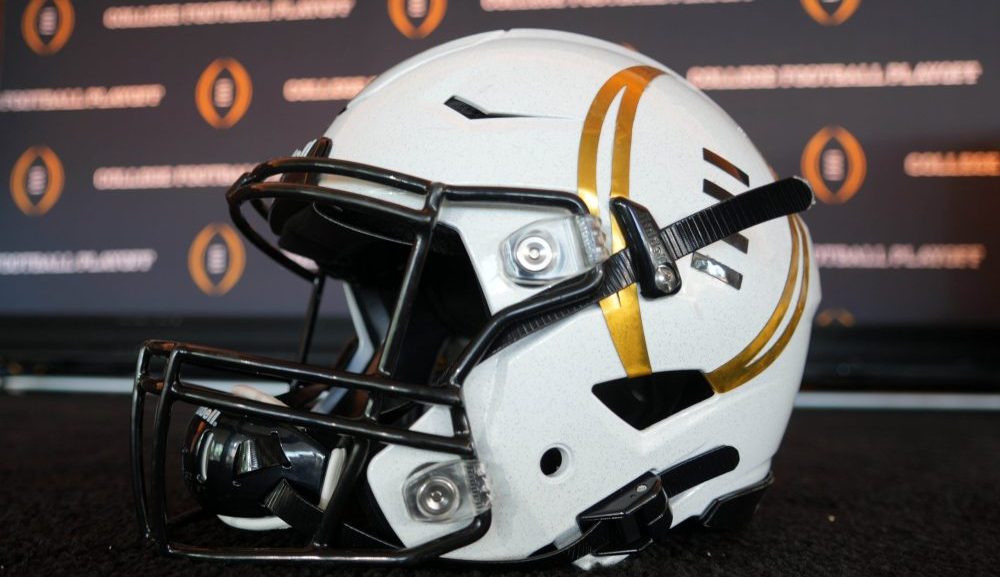TBS’s game of the week coverage for the second half of the season— running through the NLCS— begins on Sunday when the Pirates visit the Cubs. Ernie Johnson and Ron Darling will have the coverage at 1 PM Eastern. Darling will then also call the Yankees-Red Sox game on July 16 alongside Brian Anderson. Among other topics, Darling spoke with Awful Announcing about those two matchups, baseball’s rookie revolution with Aaron Judge and Cody Bellinger, and when his local Sportsnet New York crew determines when go into “blowout mode.”
Note: This interview has been edited for length and clarity.
Your national slate for TBS begins Sunday with Pirates-Cubs and Yankees-Red Sox on the 16th. You’ve seen enough of the teams doing local games for the Mets. What interests you about these first two matchups?
I think that the first game is gonna be really interesting to spend some time with Joe Maddon. He’s such an intellectual guy, and to hear his take on maybe why the Cubs haven’t played as well as they played last year at this time. I know from an outsider looking in, he had such a historical pitching season last year and that certainly isn’t the case this year. That kind of makes sense, why they haven’t dominated.
But I want to hear from Joe. You know, you only really know about a club if you watch them every day. And if you’re a manager like Joe who has a great view [of the team], he’s pretty good at knowing the pulse of his team. So I’m looking forward to that.
As far as the Yankees and Red Sox are concerned, about five years ago we were all talking about every team trying to acquire as much young pitching, hard throwers, as they could. And now we’re talking about, and this includes the Cubs and others, acquiring young, every day talent. It’s not as fungible or mercurial. They play every day, just about every day, and they get injured less. So to see all the young talent that the Red Sox have, all the B’s, Bogaerts, Bradley Jr., Betts. And then of course the Yankees have a lot of young stars.
That’s what I’m looking after. A group of young great athletes that the MLB is seeing.
How do you juggle the national schedule and local duties in terms of preparation and also having good chemistry with different crews, whether with Gary Cohen and Keith Hernandez on SNY or Ernie Johnson or Brian Anderson on TBS?
The latest
As far as the national thing is concerned, I think I’m very fortunate that all the guys that I work with, whether it’s Ernie or Brian and others, I’ve been around long enough that I’ve worked with all the people. And it’s not only that they’re good at their jobs, they’re also really good people. So every time I see these guys on the weekend, I’m in a situation where I’m gonna spend 48 hours with people I really, really like being around. And that makes it very easy.
Looking to a national baseball perspective, do you think it’s possible that we’ll see rookies, Cody Bellinger and Aaron Judge, win the MVP awards on both leagues?
When I was still in high school, Fred Lynn had the year he had with the 1975 Red Sox. So I know, certainly, that it can be done. And I’ve seen some real special people do it. So yeah, I don’t think anything has a limit anymore.
When I was a kid, I played against the best teams in my hamlet, village, town, whatever. These young people play against their equals all over the country. So they’re much more prepared, I think, at a young age to excel. And so I think we’re gonna see waves and waves of young guys like Judge and Bellinger compete for MVPs just like Trout and Harper have done before.
We’re seeing more and more the prevalence of the “three true outcomes,” strikeout, walk, homer, in baseball. Do you think that’s better or worse for the game, the way hitting has been headed the last couple of years?
Well I think— and this is not scientific, just something from me doing games every day— there’s less action happening. I think anytime there’s less action, it’s not good for baseball. The ball is now leaving the park in record amounts. I think in June, right, there were the most home runs ever hit in any calendar month of any year in the history of the game. Always when there are records like that, it piques your interest.
So I think there’s less action. I think the athletes are bigger and stronger than they’ve ever been before. But as far as the three outcomes, I think [it’s] right on with that assessment, but I’m not saying it’s the best for the game.
Let’s talk about the comments you made during a recent SNY broadcast, about the Mets’ training staff, or training staffs in general. It got a lot of local interest here in New York, and national interest as well. What were you thinking when you made that statement and do you still stand by what you said?
Ron's comments about injuries and training pic.twitter.com/yqf47Nu326
— SNY (@SNYtv) June 28, 2017
If you listen to the whole comment, my exact words were “this is not only a Mets problem, this is a baseball problem.”
And the place where I made a mistake is that I said the training staffs. People who train ballplayers and help put them back on the field have always been dear friends of mine. When I was in Oakland, I was traded there and Barry Weinberg, who’s been a trainer forever, became my best friend there. So those people who do that, a blue collar job of showing up at 12:00 in the afternoon and leaving to go home at 12:00 at night, are really the unsung heroes. So that was my mistake in choice of “training,” because that became trainers to most people and that was a mistake, huge on my part.
But I do stick by my words in this sense. And that is I think that the organizations’ training methods, I believe, are going to have to be looked at because a lot of guys are getting bigger, and they’re getting stronger, and I don’t think they’re getting better at the ability to play baseball. And I mean run from home to first, make a play in the outfield, all those things. To run from home to first and have as many injuries as some teams have had is something that should be looked at.
And the third part of that was really just frustration. I get to watch this ballclub, and these fine athletes with the New York Mets. And to see a 23-year-old kid like Robert Gsellman go down, when you watch these kids every day you just get frustrated because you want to see them make their mark, and no one can make their mark if they’re sitting in the training room. So that’s where all of those comments came by. So I stick by it, but I should’ve, when I said training, I really meant organizations and the way they train their athletes as opposed to trainers, who, of course are to me some of the glue that holds this game together.
Last question, and this is something my friend suggested. When games get out of hand, announcers go into blowout mode— or whatever you want to call it— and get to conversations and stories, dialogue and more light-hearted moments. How do you know when you guys should go to that and how is that decision made?
This might be the greatest question I’ve ever been asked. One, I don’t know. And second, it’s a pure feel thing. Because there’s games that you’ll be doing that are 10-2 in Colorado and you’ve got to have a sticktoitiveness because anything could change. And then there’s a game that’ll happen at Citi Field where a team is winning 5-2 and it feels like it’s over.
So it really is a feel thing, and I think we’re lucky enough with the show I have on SNY that our producer Gregg Picker— as well as us in the booth— has a great feel for it also. We have this shtick thing that we do with the baseball cards that people tend to like in blowout games, and it’s usually Gregg Picker’s call when we go to it. And we’ve disagreed sometimes in the booth where we go “I don’t know if we should go into the baseball cards,” and he would say “hey listen, this game is over, we’re going to the cards.” And so he has a great feel for it too.
I think that what we try to do is, let’s say the Mets are being blown out in a game. What we’re trying to do is, people are watching and when a team is getting blown out, there’s really nothing good you can say. So we’re trying to take it off of the game and bring it someplace else where we’re still entertaining folks despite their home team losing. I think that’s what we’re trying to do. When we’re working well, we’re like a great free-form jazz kind of team, you know? Whoever is hot will play the instrument they’re playing and we let them roll with it.







